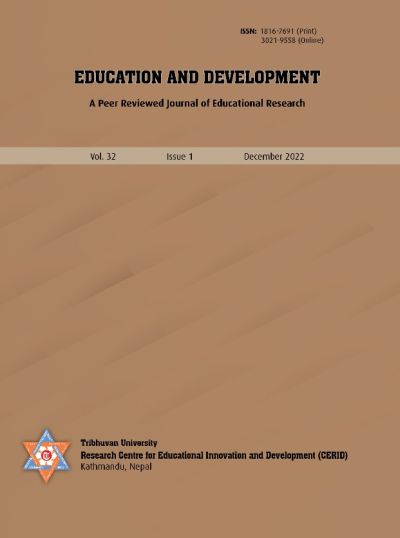Translanguaging as a Mediator of Learning: Observation in the EFL Classes of Nepal
DOI:
https://doi.org/10.3126/ed.v32i1.61586Keywords:
affective mediator, cognitive mediator, EFL class, interactional mediator, translanguagingAbstract
This paper explores the implementation of translanguaging in English-as-a-foreign-language (EFL) classes, focusing on its application in the context of sociocultural learning theory. By conducting naturalistic observations of 21 Grade 9 EFL lessons in three community schools in Kathmandu, the study investigated the benefits of translanguaging for Nepali-English emergent bilinguals. Thematic analysis of the classroom discourse using ATLAS.ti revealed that translanguaging effectively facilitated English learning through cognitive, affective, and interactional mediations. The research context featured low motivation and cognition levels, with Nepali as the common mother tongue (MT) for both teachers and students. In this scenario, translanguaging played a crucial role in mediating English language learning. The study underscores the importance of embracing students’ MT alongside English to foster a more effective and meaningful learning experience for emergent bilinguals in the contexts similar to the researched one. This highlights translanguaging as one of the valuable tools in target language learning (TL).
Downloads
Downloads
Published
How to Cite
Issue
Section
License
Copyright (c) 2022 The Author(s)

This work is licensed under a Creative Commons Attribution-NonCommercial 4.0 International License.
CC BY-NC 4.0. This license requires that reusers give credit to the creator. It allows reusers to distribute, remix, adapt, and build upon the material in any medium or format, for noncommercial purposes only.




